Deciphering the perfect revenue optimization formula is an ever more challenging feat. Shifting reservation channels and morphing consumer booking patterns continually conspire to make the right revenue mix a moving target.
Additionally, customers no longer have static needs. They have different priorities per trip – meaning during each excursion, they’re more apt to be seduced by a different price, which upends everything the industry has held sacrosanct regarding perfect pricing. The rules of customer engagement have permanently changed, and revenue managers must recognize and adapt to this new reality.
Forecasting, too, has entered a new era. Forecasting, of course, uses historical data and booking pace data from the PMS to determine the direction of future trends. While that still holds true, there is one notable difference. The sheer number of sources from outside the PMS can now be considered when forecasting perfect pricing.
Now, thanks to the emergence of Big Data, there are more trackable pricing variables in play than ever before, providing a macro approach, rather than an internal information only to aide in more intelligent rate forecasting. Failing to consider these hidden bits of pricing insight makes it impossible to achieve revenue optimization goals.
Sadly, people are unable to process all these new input streams simultaneously; but it’s not a lost cause. There’s technology coming to the rescue, and it’s merging forecasting and pricing into an easy to understand opportunity bundle.
Forecasting’s traditional roots relied on historical property management system data from the same date over a period of years. That data was then used to predict the most likely pricing threshold for a specific day. While that made sense at the time, this process ignored many morphing factors such as local events.
To fully maximize opportunity, revenue managers must take an outside-in approach to examining available data. That means getting out of the specific information silo and integrating up-to-date market data (including supply and demand), room pricing of direct (hotels) and indirect competition (including peer to peer lodging sites such as Airbnb, and other alternative accommodation options available within the destination), review scores on hotel review sites, among many other variables.
Without truly leveraging all this data that’s now available, revenue managers are essentially playing a game of darts; blindfolded. They’re hoping to hit a pricing bullseye, but have no real idea where that bullseye is.
Revenue managers must look at all available data sets to reveal the most accurate forecast, and then price the most accurate room rate. Be warned. That bullseye is an ever-moving target as demand variables change as that stay date gets closer.
Smart data insight, which is determined through revenue management system collection and analysis of market predictors, helps determine an accurate forecast for the time period in question. That reveals the most accurate price recommendation that’ll earn the most bookings, and therefore the most revenue from each booking. Unlike traditional revenue setting methodology where revenue managers established pricing based on their own internal PMS data (aka inside/out forecasting), today’s most successful revenue managers base their prices on available external data (aka outside/in forecasting) to set an accurate pricing threshold, from which room rates should be based.
So, forecasting and pricing are now forever conjoined. One unable to be effective without the other. It’s the perfect match to help decode the right business mix to fully maximize a hotel’s revenue potential on any given night.
Want to learn more tips on how to optimize your revenue management? Get in touch.






